
How To Write An EPQ Essay (Step-by-Step Guide)
In A-Level by Think Student Editor March 29, 2019 8 Comments
Whatever the reasons were for you choosing to write an EPQ, the grade you get is most definitely important to you. That is why I have written this (hopefully) detailed guide on how to write an EPQ.
1. Think Of An EPQ Topic That Genuinely Interests You

It’s important to choose an EPQ you’re interested in, or you may run into some problems . Many students take EPQs each year, and many students fail because they make this mistake.
If you don’t take an EPQ you’re interested in, you’ll have no motivation to work on it . This will be because you start to want to do other things, anything instead of your EPQ.
Think about revision, for example. Is it interesting? Nope. Would you rather be playing videogames, watching Netflix, or literally anything else? Yeah, me too.
If you’re not motivated to write your EPQ essay, then you’ll either not do it or do it badly. If you don’t work hard for it, you won’t get good marks – and therefore there’s less point in even taking it in the first place .
If you find an EPQ topic to write your essay on that genuinely peaks your interest, you’ll find it much easier to get better grades in it.
A more interesting EPQ essay topic will mean that your focus is better . This will result in a better EPQ, meaning more marks when you hand it in.
You’ll also enjoy the EPQ a lot more if you find it interesting . You’ll find the whole experience a lot more fun, and therefore a lot easier too.
To find an EPQ topic that genuinely interests you, you just have to think about what you like. There are lots of different things you can do, but you only get to choose once – so choose carefully.
And if you’re really stuck on ideas, take a look at this list of 600+ EPQ ideas that guarantee an A* . Any of these ideas will be great for your EPQ, so just choose one that interests you and that you’ll actually enjoy.
2. Create A Mind Map Surrounding Your EPQ Topic

A mind map is where you write down everything you know about a topic . In this case, you’d be writing down all the ideas and concepts surrounding your EPQ topic.
That way you can see everything you need to write about in your EPQ essay. You’re essentially making a mood board for whatever EPQ idea you’ve chosen, and it will help you get in the right mindset for the task ahead.
Mind maps are most commonly used to identify gaps in your knowledge . Students tend to use them when revising to work out what they don’t know, whilst also helping them consolidate what they do know.
In terms of your EPQ essay, a mind map will provide a loose structure for you to follow . You’ll come up with lots of different things you can write about, and that will make the essay a lot easier.
In addition to this, whilst creating your mind map you may even decide to change your topic entirely. You might find that the topic you’ve chosen isn’t giving you any idea inspiration, and so you move on to a different topic.
To make sure you get your mind maps right, you might want to follow this helpful guideline . It’s mainly about studying, but the same things can be said for planning your EPQ essay.
Don’t try rushing in to your EPQ essay without first creating a mind map . Mind maps are more useful than most students think…
Mind maps will help you avoid getting lost in what you’ve written, what you’ve missed, and what you’re planning on doing. You can use your EPQ topic mind maps as a sort of checklist as you write your EPQ essay.
3. Use Your Mind Map To Think Of A Question Related To Your Main EPQ Topic

Many students forget to think about this, but it’s probably the most important part of your EPQ . If you get this bit wrong, you can say goodbye to a good grade in your EPQ.
The question relating to your EPQ topic of choice is what you’ll spend your time working on . The 5000 words you write will be about this question, and so it really needs to be a good one.
If you don’t make it a question that interests you, then you’ll find it harder to write as much about it. Find a question that genuinely peaks your interest (relating to your EPQ of course) and the rest will come naturally.
It’s also important, however, that you choose a question where there’s a lot to write about . If you choose a question with lots to write about, you can use that to your advantage when trying to reach those 5000 words.
However, if you don’t choose a question where there’s a lot to write about, you’ll find that your EPQ is slow and drains you. Not only that, but it’ll probably be worse in terms of grade too.
I’d suggest doing a little background research into your question before you start writing your EPQ essay . Just check that there’s lots to write about and then you can avoid starting something you can’t finish.
As a general rule, you’ll want questions that don’t have definitive answers. If you can find a question that is inconclusive, you’re onto a winner.
If you can’t be bothered to look up EPQ questions, then there’s an alternative . Take a look at this list of 600+ EPQ ideas that guarantee an A* .
4. Write Down Subtitles That Relate To Your Main EPQ Question

Writing down subtitles for your EPQ question means that you’ll have a better idea of what’s actually going into your EPQ essay .
When you create your subtitles for your EPQ essay, you’re essentially writing down all the mini-topics you’ll write about. You split up the massive 5000 word count into smaller, more manageable parts.
I’d suggest making as many subtitles as you can that relate to your main EPQ question. Just go for a massive brainstorm ( potentially using your mind map ) to try and come up with lots of subtitles.
That way you maximize the chances of you making some actually good subtitles. You’ll have lots of options to choose from, and your EPQ will benefit from having such a varied range of points.
You also put yourself in the right mindset for your EPQ essay . You’ll be much more open to different ideas and approaches whilst actually writing the EPQ, and examiners will see this and give you extra credit.
However, you need to make sure that the subtitles you’re writing actually relate to your EPQ question . If they don’t, you could run into some serious problems.
If you choose to work on a subtitle that doesn’t wholly relate to your EPQ question, you risk filling up your word count with irrelevant information. That means less room for the important stuff, and less marks for you.
Make sure you check all your subtitles before you start writing . Work out what the plan is before you start writing, so that you don’t have to rewrite a large portion of your EPQ essay.
So grab a pen and paper, sit down, put on some nice music, and get to writing those subtitles.
5. Triple Check That Every Subtitle Question Actually Relates To The Main EPQ Topic

By this point, you should have around 16 subtitles that you want to include in your EPQ essay . 16 subtitles will give you a nice 300 word per subtitle guide, give or take a few.
Any more subtitles, and you run the risk of overcomplicating your EPQ. Any fewer, and you’ll struggle to reach that gargantuan 5000 word count.
It’s essential that you break down your EPQ essay into smaller modules like this, to make it easier for you in the long term. 16 subtitles will mean the best productivity for you when you actually come to write your EPQ essay .
The next step is to order your subtitles, for easier reading. You’ll want to make the layout of your subtitles as sensible and as easy to follow as possible for your examiner .
If you please your examiner like this, they’ll be more inclined to give you more marks. They mark you on your written communication, and therefore you’ll want to make sure you’re communicating the most effective way.
Try ordering your subtitles by the order of most important to least important . Laying out your subtitles this way will show your examiner that you’ve really thought about your EPQ and understand what they want to see.
Alternatively, you could lay out your subtitles chronologically . What I mean by this is that you start with your question, move onto research, then explanations, and finally a conclusion.
This is probably the best way to lay out your EPQ essay subtitles . It’s the easiest way to follow the process you went through, and examiners like to see EPQ essays that are laid out like this.
It’s how I laid my EPQ essay subtitles out, and I got an A* – so I’d suggest doing the same.
6. Allocate A Word Count To Each Element Of Your EPQ Structure

You’ll want an introductory paragraph to start with, and that should only take about 200-300 words . Don’t go overboard with your introduction, as you should aim to make the bulk of your essay about your EPQ question.
I’ve already mentioned it, but you want to write about 300 words per subtitle . This is the perfect amount of words to write if you want the EPQ essay to go as smoothly as possible.
16 subtitles at 300 words each will put you at just under 5000 words – 4800, to be exact. That will leave you just enough room to add a short introduction too.
You can go for less subtitles, but that means a higher word count for each individual subtitle . If you make your word count per subtitle too high, then you’ll struggle when it comes to actually writing your EPQ essay.
You could also try more subtitles if you want, but that then means you’d write less per subtitle . That means there’s less room for all your explanation, and less marks when you hand it in.
I’d recommend keeping your subtitle count between 14 and 18 . That way you give yourself the best chances of your EPQ being easier to write.
You also make it easier for you to enjoy, too. Making your EPQ essay subtitles this long means you’ll find it easier and less monotonous, and therefore you’ll enjoy it more.
The word count of each element in your EPQ essay has an impact on your productivity and focus, too . Generally, the shorter the piece of writing you have to do, the more productive you’ll be.
Setting yourself short-term goals like this will help you stay focused and make your EPQ that little bit better. It’s worth setting effective word counts for your EPQ essay elements for those extra marks .
7. Research, Research ( And A Little Bit More Research )

Research should make up about 40%-50% of your total EPQ essay . That’s a lot of research, and you can see from this figure that quality research is crucial to your success.
The reason research takes up so much space is because you need to explore all opportunities within your question. Research will help you develop ideas and improve your knowledge of the subject, helping you to better answer your EPQ essay question.
And besides, who doesn’t want help reaching the massive 5000 word count?
There are many ways to research, with the most common being the internet, and books . Both ways of researching are valid and useful, but you still need to be careful.
Especially with the internet, you may come across facts and information that isn’t entirely accurate. This is because anybody can access anything, and usually the information you see online is edited by people who aren’t professionals.
Try to stay away from websites like Wikipedia, where anybody can change the information you see . There are much better alternatives out there, like Google Scholar for example.
Whereas with books, they have to go through a long-winded process to ensure they’re accurate . Books tend to be slightly more reliable than the internet, especially if they have an ‘exam-board approved’ label on them.
I’d also recommend keeping track of all the sources of your information, as you’ll have to write a bibliography at the end of your EPQ .
What that basically means is that you have to reference each individual source of information after you’ve written your EPQ essay. That’s just so examiners can check to see if you’re plagiarising any content, in case you were wondering.
8. Check That Your EPQ Structure Still Makes Sense

You should have around 16 subtitles ready to go, in chronological order or order of importance . I’d suggest chronological order, but that’s up to you.
You should also have space to add an introduction and conclusion paragraphs . They shouldn’t take up too much space, but still leave some room for you to add them in.
You’ll actually want to wait until the end of your EPQ essay to write either of these paragraphs, so it might help to add placeholders until you get to writing them.
Around 7 of your subtitles should be based on research . You’ll want to leave yourself a nice amount of in-depth research, whilst also allowing room for all that explanation.
If you don’t give the right proportions for your research and explanation subtitles, your EPQ can become lopsided. Examiners will easily spot this and take away precious marks.
You’ll want your conclusion to be longer than your introduction, as you’re essentially summing up all that you’ve written . Your conclusion should be about the same size as your subtitles, but maybe just a little bit bigger.
If all else fails, just read through your structure and think about it from an examiners’ point of view. Does it all make sense? Are the subtitles in a sensible order? Have you left space for your introduction and conclusion paragraphs?
If you reckon you’ve got all these elements in the right order and the right sizes, you should be good to go. Just keep a clear focus on your EPQ essay question, and you can’t go wrong.
9 . Write Down The Answers To Each Of Your Subtitles

Start with your subtitles to get the main bulk of your EPQ essay underway . The quicker you get your subtitles done, the sooner you can finish your EPQ.
Starting your subtitles first is a good idea, as they make up most of your EPQ. You’ll want to get them done first, and then you have time after that to work on the finer details.
As I’ve said, your subtitles should be around 300 words long . This will allow you just enough space to answer the subtitle, without repeating yourself or going overboard.
If you go too far over 300 words, you risk either repeating yourself or just extending your points so much that your words become empty. Empty words = no marks, which is what you definitely don’t want.
If you don’t write 300 words, the points you make are likely to be underdeveloped. This means you can’t get into the top band of marks no matter how good what you’re saying is – there’s just simply not enough of it.
Of course, if you think you can express yourself in more or less than 300 words, go for it . Everybody’s different, and some people have better writing skills than others.
The amount of words you write per subtitle can also depend on how many subtitles you have . If you have less subtitles, you write more words per subtitle, and vice versa – simple maths.
Try to explore every possibility within your subtitle. The more routes you go down and the further the detail you go into, the more marks you’ll get from the examiner.
10 . Write The Introduction And Conclusion Paragraphs

Your introduction paragraph needs to be slightly shorter than your average subtitle paragraph . Usually about 200-300 words, the introduction will basically talk about what’s to come in your EPQ essay.
If you make your introduction too long, you waste space that you might need for your research/explanations. You also take up space that could be used for your conclusion, which is very important.
It’s a good idea to write your introduction paragraph after you’ve written all of your subtitles . It may sound odd, but there’s method to the madness.
If you write your introductory paragraph last, it’ll be a lot more accurate than if you’d have done it at the start. You’ll know exactly what’s in your EPQ, and therefore your introduction can accurately ‘introduce’ your essay .
Your conclusion paragraph should be slightly longer than your average subtitle, and definitely longer than your introduction . I’d say about 400 words, your conclusion should sum up everything you’ve talked about in your EPQ essay.
Your conclusion should essentially answer the question you asked at the start of your EPQ essay. You should aim to include everything you talked about in your other subtitles (that’s why it’s a little bit longer).
You’ll obviously want to write your conclusion paragraph after everything else, or you’ll have nothing to conclude. Once you get on to your conclusion, you’re on the home stretch.
11. Get Someone To Proof Read It To Make Sure There Are No Errors

Proof reading your EPQ essay is so, so, SO important to your success . If you don’t proof read your EPQ essay, you may miss some pretty crucial mistakes…
I’m not just talking about the spelling mistakes you may have made (although you might want to fix those too). I mean the mistakes where you contradict yourself, go off topic, or even just get your facts wrong.
I’m sure I don’t need to explain it, but these mistakes will cost you dearly when your EPQ gets examined . Sometimes just a few marks can be the difference between an A and an A*, so you need to maximize your chances of success.
A good way to ensure your EPQ essay is perfect is to get someone else to look through it. Having a second opinion ensures that everything you’ve written is accurate and concise, and it’s better than just checking through it yourself.
If you rely on your own methods of checking through your work, you’re more likely to miss mistakes . Having a fresh perspective on your work broadens the chances of catching every mistake you make.
It doesn’t matter who you get to check your work . You can ask friends, family, or even your teachers/tutor – just get it proof read before you send it off to be marked .
If you need to check through it for spelling mistakes or wording issues, there’s a handy little trick I used for my EPQ essay. Paste your entire essay into google translate, and have it read out to you .
That way you can listen and check for anything that’s not quite right, and sort it out in time for your EPQ essay to be examined.
Thanks so much for the help !
This is so, so helpful, thanks so much!
How many resources should I have for my EPQ?
20-25 should be the right number
Hi, thanks for the cool tips! I will definitely keep it for myself
Hello, thanks for the cool advice, but the most difficult thing for me is 1 point – to think through the topic itself. Therefore, already at the first stage, I give up and turn to the college essay writing service. This service helped me more than once or twice. My friends also use it. Also, it is difficult for me to create a mental map, which is in point 2. Therefore, I would rather spend my writing time on purposes that are useful to me.
This is so useful! I have been working on my EPQ over the past few weeks and have had a few big quandries about how I should go about forming an answer to my question and this has made it much clearer. Thank you!

How To Write An EPQ Essay & Dissertation (9 Steps)
Writing an EPQ essay involves several steps to ensure a well-structured and compelling piece.
Here is a 9-step guide to help you write an effective EPQ essay:
- Brainstorm EPQ topic ideas : Choose an engaging topic that interests you and is relevant to your academic or career goals.
- Conduct research : Gather information from various sources to support your arguments and provide evidence.
- Create a structure : Organise your essay with a clear introduction, main body, and conclusion. Outline the main points and arguments you will cover in each section.
- Write an introduction : Begin your essay with an introductory paragraph that introduces the topic, outlines the scope of the essay, and provides an overview of the structure 4 .
- Develop the main body : Write the main body of the essay, focusing on presenting your arguments, evidence, and analysis. Ensure each paragraph has a clear topic sentence and flows logically from one point to the next.
- Use proper referencing : Cite your sources correctly to avoid plagiarism and demonstrate your research skills.
- Write a conclusion : Summarise your main points and answer the question you posed at the beginning of the essay.
- Review and revise : Proofread your essay for grammar, spelling, and punctuation errors. Ensure your arguments are clear, coherent, and well-supported 1 .
- Seek feedback : Ask a teacher, tutor, or peer to review your essay and provide constructive feedback to help you improve your work
The article below is designed to help you develop a strong foundation for writing your EPQ essay by providing practical tips and guidance from an expert in the field.
You’ll learn about key elements such as structure, formatting, research methods, argumentation techniques and more so that you can craft a compelling paper that stands out from the crowd.
By following these steps, you’ll have all the tools necessary to make sure your EPQ essay stands out and meets its desired goals.
- 1 Understanding The EPQ Essay Requirements
- 2.1 Organizing Ideas
- 2.2 Outlining Content
- 3 Formatting Your Essay
- 4 Researching For Your Essay
- 5 Developing Your Argument
- 6 Crafting A Compelling Conclusion
- 7 Writing a good EPQ essay
Understanding The EPQ Essay Requirements
Navigating the world of EPQ essay writing can be intimidating, and even overwhelming at times! But never fear – with a little bit of knowledge and preparation you’ll find yourself soaring towards success.
At its core, crafting an effective EPQ essay comes down to analyzing expectations and exploring options. It’s important to take into account the specific requirements for your topic or course; many professors will have different standards that need to be met.
Once you’re clear on what needs to be accomplished, it’s time to get creative – start brainstorming ideas and looking for relevant sources that support them. Be sure to record everything as you go along so you don’t forget any key details later on in the process.
Research is essential here, but make sure not to lose sight of the bigger picture: Your paper should still reflect your unique perspective and originality. With this approach, you can create an engaging work that will stand out from the crowd — one which takes readers on a journey of exploration through freedom-filled imagination!
Structuring Your EPQ Essay
Organizing your ideas is an important part of writing an EPQ essay.
Start by making a list of the main points you want to make and then organize them into groups that fit with your argument.
Once you have your ideas organized, you can start outlining the content. This will help you create a logical flow of information and ensure that your essay is structured in a clear and concise way.
It’ll also make it easier to write the actual essay, and make sure that you haven’t skipped any important points.
Organizing Ideas
Organizing your ideas is an important part of writing a successful EPQ essay. Before you start jotting down notes or typing away on your computer, identify the sources that will be most useful in completing your project.
Ask yourself questions like “what do I already know?” and “where can I find more information?” By identifying these sources early on, you’ll ensure that all the research needed to write a quality paper has been done ahead of time.
Once you’ve identified the best source material for your project, it’s time to develop a structure for your essay. Think about how each point should flow logically from one to another and what order would make the most sense when reading through your work.
As with any type of academic writing, having an outline helps keep everything organized and makes it easier to create well-structured argument points throughout your paper.
Additionally, if there are sections where multiple topics require further discussion, consider breaking them up into separate paragraphs so readers can easily digest each idea independently.
Writing an EPQ essay doesn’t have to be overwhelming; by taking proactive steps to organize ideas before starting the actual writing process, you’re sure to craft an impressive piece of work!
Outlining Content
Once you’ve identified the sources and outlined your structure, it’s time to start brainstorming techniques for what content should be included in your essay.
This is an important step to ensure that all the key points are covered in a logical order. Brainstorming can include anything from writing down ideas as they come to mind or even mapping out each section with bullet points.
Additionally, if there are any specific topics you’d like to discuss further, consider breaking them up into separate paragraphs so readers can easily digest each idea independently.
No matter which strategy works best for you, it’s essential to make sure that each point has been thoroughly researched beforehand—this will guarantee that only quality information is presented throughout your paper.
Writing an EPQ essay doesn’t have to be daunting; by taking proactive steps such as outlining the content of your project ahead of time, you’re sure to craft an impressive piece!
Formatting Your Essay
The formatting of your essay is as important as the structure. When structuring, you made sure all the pieces were in place and ready to go; now it’s time to make them look nice.
You should consider several stylistic choices when formatting:
- Word choice – Use precise language that adds power and meaning to each sentence without detracting from its original intent
- Font size – Choose a font size that looks professional yet comfortable for reading
- Headers/subheaders – Create visual breaks between sections using headers or subheaders with interesting titles that capture readers’ attention
- Margins – Establish margins so your reader can easily find where one section ends and another begins
By implementing these subtle but powerful formatting techniques, you will improve the overall quality of your EPQ essay and ensure a successful submission!
Researching For Your Essay
The research phase of an EPQ essay is one of the most important steps to ensure you can write a quality paper. Defining your objectives clearly and citing sources accurately are essential for success. As such, it’s important to take your time during this step, as any mistakes here will be difficult to recover from later on in the writing process.
When researching for your essay, begin by getting organized. Gather all pertinent information related to your topic and compile them into separate folders or files so they’re easy to access when needed.
Once that’s completed, start reading up on relevant materials and taking notes along the way – summarize each source and make sure you properly cite authors at the end of each note taken. Doing so will help you save valuable time looking back through books or articles once you move onto actually putting pen to paper (or fingers to keys).
Ultimately, if done correctly, research should provide a solid foundation which allows you to create an innovative and unique piece of work without having to worry about accuracy or plagiarism issues!
Developing Your Argument
Having completed your research, it’s time to develop your argument.
To do this, start by brainstorming ideas about the topic and evaluating sources for their relevance and suitability. Consider which evidence is best placed to support your position on a particular issue or idea.
After gathering all of your information from various sources, try to identify the common themes that emerge in relation to the topic you are researching. In order to form an effective argument, you will need to assess how each piece of evidence fits together in order to demonstrate its relevance and importance.
This could include looking at different perspectives on an issue or comparing multiple results of research studies into a specific field. Additionally, make sure that when forming your argument you take note of any counter arguments which may be presented as these can help strengthen your overall conclusion.
Once you have identified all relevant points related to your argument, consider how they work together and analyse them more deeply – this will allow you to draw meaningful conclusions from the data available.
Crafting A Compelling Conclusion
The conclusion of your EPQ essay is essential to summarizing all the points you have made and discussing their implications. It’s important to remember that this section should be both succinct and clear, so as not to confuse or distract from the main message of your paper.
When writing a compelling conclusion, start by restating your thesis statement in a different way than you did at the beginning of your paper.
Take some time to review each point discussed throughout the body paragraphs and summarize them briefly. This will help remind readers what they just read and why it matters.
Additionally, make sure to tie up loose ends, such as unanswered questions, by either providing an answer or referring back to prior sections.
Finally, conclude with a strong sentence that drives home the importance of your topic while offering insight into future research possibilities or other relevant discussions.
Writing a good EPQ essay
In conclusion, writing an EPQ essay is a unique challenge that requires serious attention and hard work.
With the right structure, research, argumentation, and conclusion in place however, you can put together a compelling piece of writing that will impress even the most discerning master’s student.
One interesting statistic to consider when crafting your essay is that only 50% of students who submit an EPQ are successful in achieving their desired grade.
This serves as a reminder to emphasise quality over quantity in your work: focus on making sure each element of your essay is thoroughly researched and well-written before submitting it for review.
What Is The 11 Plus Exam?
The Ultimate Guide to A-Levels for Psychology
Leave a comment Cancel reply
Reach out to us for career and sponsorship opportunities.
© 2024 Acrosophy Excellence in Application
A Medical MBA Company The Medical MBA Ltd Company number: 13561401 86-90 Paul Street, London, England, United Kingdom, EC2A 4NE

How to Write an EPQ essay (including lessons I’ve learned from writing my book)
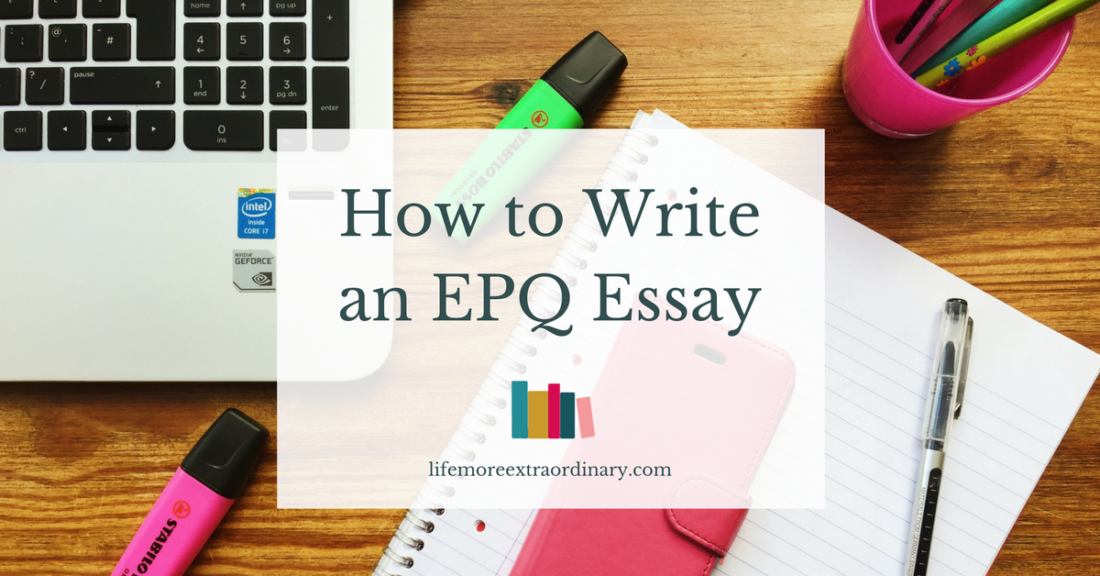
Having just finished re-writing my book, The Ten Step Guide to Acing Every Exam You Ever Take (due to be published in February 2017) I thought now was the perfect time to share the lessons I've learned from doing an extended piece of writing like this so you can apply them to writing your EPQ essay.
How to write an EPQ essay – 9 Steps
1. your idea.
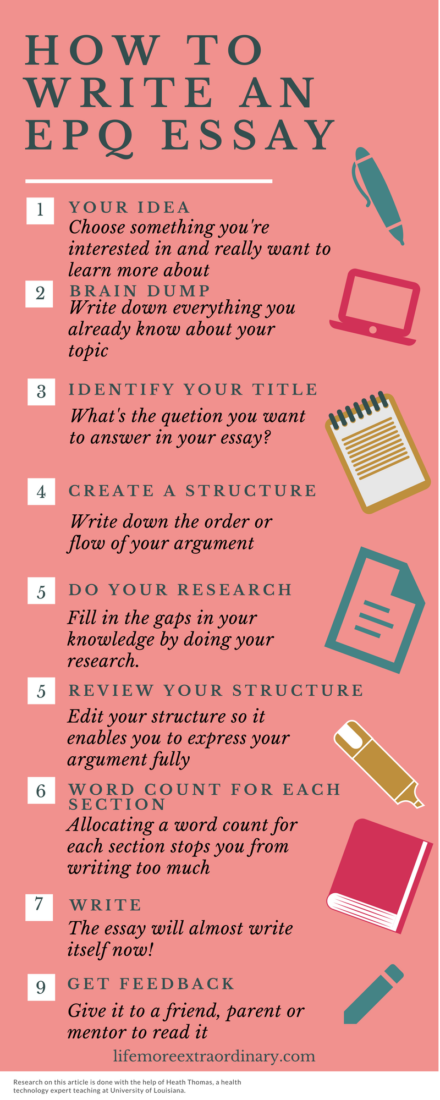
I did exactly this with my book. I want to become known as an expert in study skills and exam skills. The perfect way to do this is to write a book about it. Hopefully lots of new people will find me as a result of reading my book and want to work with me . My book is furthering my long-term aims (as well as being something I've always wanted to do – yippee for being a published author!).
2. Brain dump
Once you've come up with an idea brain dump everything you already know about it. This is important because your current knowledge is the foundation of where you're going to go next. It will also enable you to identify the gaps in your knowledge and therefore what further research you need to do.
Believe it or not, over the last eighteen months or so my brain dump has been my blog ! As I've listened more and more to my readers to hear what they need help with and what problems they have I have learned more and understood more about the field of study skills. I've researched, thought and read to improve my knowledge and understanding and put all that knowledge into my blog.
3. Identify your title or question
The next step is having some idea of what your title might be or what question you want to answer with your work. Throughout your research you need to ensure that you're finding information that will help you to answer this question.
With my book, the title dictated the structure that the book would take. It helped me to stay focused on what I needed to include as well as exclude.
4. Create a structure for your finished piece
From what you know already and the title you have identified you can create a draft structure or plan for your finished piece of work. Again, this structure will help to keep you focused on what research you need to do to properly answer your question. However, remember that you can always change your structure if what you find in your research deems it necessary.
When I was writing my book I had the overall structure which started with four parts and the ten chapters were divided up between those four parts. When I sat down to write each chapter I wrote a list of what I wanted to include in each of those chapters and decided in what order it was logical and sensible to write about each of those things. Doing this made the actual writing part easy – the book almost wrote itself!
5. Do your research
Now is the time to fill in the gaps in your knowledge by doing your research. Make sure you stay focused on your title and structure all the time that you're doing your research. It's also really important to keep a clear record of where you've gained your information for your references and bibliography. I remember in my early days at university writing endless notes that then got in a muddle and I could never identify the source text which meant I couldn't use that information in an essay because I couldn't reference it. I learned my lesson and soon put a system in place so that I could always identify where my notes, ideas and quotes came from!
With my book my research was listening to my readers and clients and reading books that helped me to solve the problems that they were dealing with. For example, I read a book called ‘Mini Habits' by Stephen Guise – and used that book as the basis for a blog post. I have now incorporated those ideas into the book.
6. Review your structure
As you're doing your research, and particularly once you've finished it, you'll need to review your structure. Your structure is essentially a summary of the argument you want to make in your essay. If the information you've found has lead you to an opinion that you can't express through your original structure then the structure needs to be altered or changed. This is the time when you need to be 100% sure that your structure provides with the framework to say exactly what you want to say in answer to the question or title you have set yourself.
I have found this to be particularly important with my book. The original version of my book was written before I even started my blog. The ten steps I included were all the clearest things I'd learned from my own experience as a student and from teaching geography in schools. However, through my blog, reading and coaching I gained more insights about my own experience and what really helped others. This meant that when I came to re-write the book I had more to say so that I had to change the structure to accomodate all this new understanding and knowledge.
7. Allocate a word count to each section of your structure
You know your essay has to be 5,000 words long and you know which sections you want to put into it because you've planned your structure. To make life easy for yourself you should now allocate a word count to each section. This means that you won't fall into the dreadful trap of writing way too much and having to cull all your hard work to be within the word limit.
I did this for my book. My publisher said that he'd like a 30,000 word book. The original book was about 14,000 words so I had to more than double it. I knew that I had ten basic chapters plus an introduction, foreword and other bits and pieces. So, I set myself the target that each chapter should be approximately 3,000 words. In the end some of the chapters are slightly shorter and others are slightly longer than this but I easily hit the 30,000 word marker by making sure I was reaching the word count for each chapter as I went along.
Can you believe we got to number eight before you actually started writing? Well, this is because all the planning and research you've done up until now will make the writing process really, really easy. The essay should almost write itself!
This is what I found with my book. My plan was so detailed and I'd done so much research over the preceeding eighteen month period that the writing bit was just easy. I sat down for between one and two hours a day for just eighteen days and the first draft of the book was written. It was utterly painless. I then spent two weeks reviewing and editing as well as writing the introduction.
9. Get feedback
The final step is to get feedback on your work. Give it to a friend, parent or mentor to read it through and give you some feedback. The more they know about your subject and academic writing the better. Listen carefully to the advice that they give you and incorporate it as best you can into your work.
The first person to read my book after I'd finished it was my editor. She was thrilled with it and said that ‘it reads wonderfully' and that there was very little she had to change. I credit my thorough planning process for this praise. I hope that your thorough planning leads to the same type of praise.
Some useful EPQ resources from the web
This information from The Student Room gives some really useful background information about the EPQ: http://www.thestudentroom.co.uk/wiki/Extended_Project_Qualification
This post from the UCAS student blog helps you with where to start with your EPQ: https://www.ucas.com/connect/blogs/epq-where-start
You can download this essay guide from the TES website: https://www.tes.com/teaching-resource/epq-guide-essay-structure-6359383
If you know of any other really useful EPQ resources then leave a link in the comments below.
Over to you
I hope these tips really help you to write a brilliant EPQ as easily as possible. I've learned how to structure and organise my work in this way through years and years of experience researching, writing, reading and marking essays. Hopefully you won't have so much trial and error!
Leave me a comment below to tell me what you're studying in your EPQ and what challenges you're facing with it at the moment. I'll be sure to reply to every comment.
Get on the wait list!
My book, The Ten Step Guide to Acing Every Exam You Ever Take , will be published by John Catt in February 2017. If you'd like to know when you can pre-order make sure you're on my mailing list – you'll also get a free exert from the book when you sign-up.
Get on the waitlist here
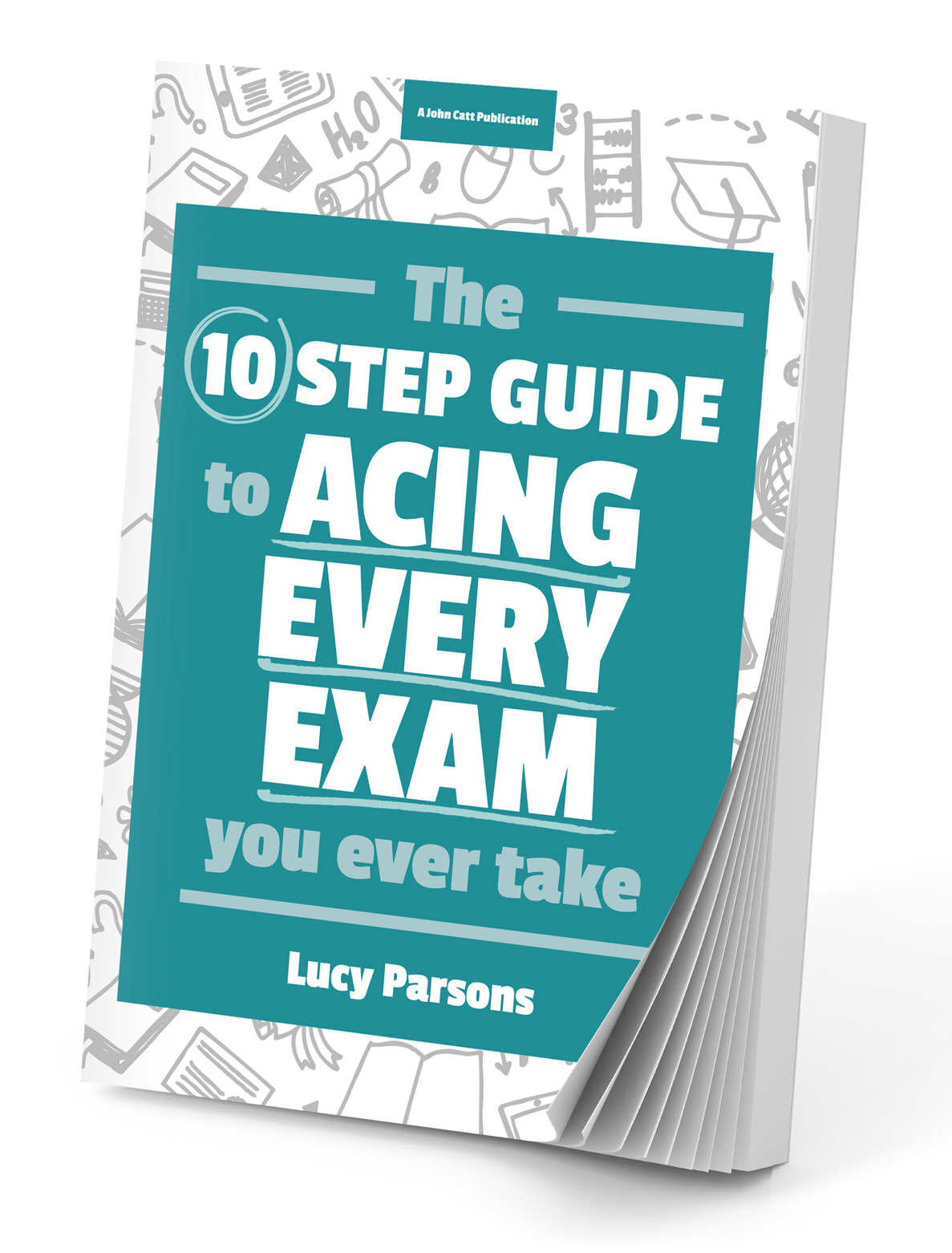
THE TEN STEP GUIDE TO ACING EVERY EXAM YOU EVERY TAKE
Download your free chapter of my book. In this chapter you will learn:
- How to personalise your revision techniques to make them more effective for you
- How to enjoy your revision (yes, I did said enjoy...)
Your personal data will be treated with respect. View my privacy policy here .
You might also like...
Why you need to make past paper practise part of your revision
3 Exam Technique Mistakes GCSE and A-Level Students Commonly Make
Lack of motivation might not be the REAL problem behind your child’s revision struggles
Stop telling yourself the lie that you don’t have time to learn to study
STOP! Is your teen learning to revise before having these foundational study skills in place?
What grades don’t tell us (and how to assess yourself instead)
Lucy Parsons
Click here to leave a comment below, leave a reply:.
Save my name, email, and website in this browser for the next time I comment.
Get your FREE chapter of our book
The Ten Step Guide to Acing Every Exam You Ever Take
Find out how you learn best. Sign-up for a free chapter of my book
Home › University › What is an EPQ? A Complete Guide
What is an EPQ? A Complete Guide
- Published April 30, 2024

The Extended Project Qualification (EPQ) is essentially an extra project you can complete during your A-Level studies. Introduced in 2006 by Sir Mike Tomlinson, the EPQ can be a fantastic way to improve your skills, prepare for higher education, and make yourself more appealing to top universities- not least because the EPQ contributes to your UCAS points. If that sounds interesting, here’s everything you need to know about the EPQ.
What is an EPQ?
In short, the EPQ is a standalone qualification similar to an A-Level. Most often, it takes the form of an extended essay, like a mini-dissertation. However, there are four ways to complete the project:
- Dissertation: A 5000-6000-word piece of independent, research-informed writing.
- Investigation/Field Study: Similar to the dissertation, but informed by primary research research, such as lab-based experiments or fieldwork.
- Performance: A performance created and given by the student, accompanied by a 1000-word analysis.
- Artefact: Media, artwork (including 2D art and sculptures), or technical products produced by the student and accompanied by a 1000-word analysis.
Students can choose their own topic, which gives them a chance to research something they’re interested in, even if it isn’t related to their studies. However, it’s usually a good idea to choose something related to your intended university degree. This can help you become a more critical and independent learner in your subject of interest (more on the benefits of completing an EPQ below).
Alongside the project itself, you’ll also need to create a logbook of your work and present your findings at the end.

Benefits of Completing an EPQ
Completing an EPQ has numerous benefits. Some of these benefits are related to your personal development as a student, and others concern getting into university.
Some of the benefits of the EPQ include:
- Becoming a more independent learner with enhanced critical and reflective thinking skills.
- Developing decision-making and problem-solving skills.
- Learning how to plan, research, analyse, present, and more.
- Learning how to confidently apply technologies to your studies.
- Improving your A-Level scores thanks to your new skills.
- Becoming a more attractive university prospect.
Most students undertake the EPQ in preparation for their university studies, but others do it because they have a topic they’re excited to research.
However, while these benefits are profound, there are some drawbacks of completing an EPQ.

Pros and Cons of Doing an EPQ
The EPQ is not for everyone, so you should take careful consideration before applying. Here are some pros and cons to help you decide.
| You can earn extra UCAS Points. | It takes up a lot of your time while you’re completing your A Levels. |
| It helps you develop useful soft skills. | It’s a difficult qualification, especially if writing essays doesn’t come naturally to you. |
| You can focus on your interests and passions. | It can be very stressful. |
What Do Universities Think of the EPQ?
For many students, how universities view the EPQ is an important deciding factor. If you’re interested in the EPQ, you’re in luck. Generally, universities look favourably towards it as an extra qualification, and they understand that students pick up extra skills that could be useful in their studies.
Currently, all 24 Russell Group universities accept the EPQ as a qualification. Some universities lower their grade offerings for students with an EPQ, acknowledging the independent research and analysis skills gained during its completion.
Furthermore, both Oxbridge universities accept this qualification. Oxford states that the EPQ won’t impact its offer, but says, “ the EPQ will provide an applicant with the opportunity to develop research and academic skills relevant for study at Oxford. Candidates are encouraged to draw upon relevant EPQ experience when writing their personal statement .”
Meanwhile, Cambridge actively encourages the EPQ . The website says, “ We encourage applicants to take an EPQ. It will help to develop independent study and research skills, which are valuable for higher education .”
In part, the positive view of this qualification is down to the EPQ UCAS points. So, what is an EPQ worth?
| A* | 28 |
| A | 24 |
| B | 20 |
| C | 16 |
| D | 12 |
| E | 8 |
Students can obtain up to 28 UCAS Points for their EPQ, which is always an attractive prospect to universities.
Is an EPQ Equivalent to an A-Level?
There is some confusion around EPQ, A-Level, and other further education qualifications. Primarily, many students want to know: what qualification is an EPQ?
An EPQ is not an A-Level. Instead, it’s an additional qualification that you take at sixth form or college alongside your other qualifications such as BTECs or A-Levels. Read our article: A-Level requirement for popular university degrees
It can be helpful to frame this another way–what is an EPQ equivalent to? Essentially, the EPQ is worth around half of an A-Level. An A* at A-Level earns you 56 points, while the same grade in the EPQ is worth 28. In other words, it’s similar to an AS-Level.
How Many Hours Per Week Should Be Spent on an EPQ?
One of the primary challenges of the EPQ is time management. After all, you have to balance your research with studying for your other subjects.
You have around six months to complete the entire project, which is roughly 130 weekdays. However, many schools set early deadlines so that the EPQ is out of the way before exams.The AQA recommends spending at least 120 hours on your EPQ, which includes researching, writing, and creating a logbook.
You can manage your time however you choose. Remember that, for standard A Levels, you should spend 5 hours per week studying outside of school. For the EPQ, 30-45 minutes per day is usually enough. Ideally, you should spend longer on your A-Levels, since these are worth more points.

General Facts About the EPQ
The EPQ is an exciting opportunity for students, but if you’re still undecided, it can help to learn more about it. Here’s more information.
What Topic Can You Do Your EPQ on?
You can complete a project on any topic of your choice. It’s a good idea to choose something that you’re passionate about or you intend to study at university. It’s also recommended to pick a subject that isn’t too broad, and something with a decent amount of academic research to draw on during your project.
For EPQ topic inspiration, read our article: 600 EPQ Ideas and Examples – The Ultimate List
How is the EPQ Graded?
EPQs are graded A* to E, with UCAS Points awarded for each grade. The marking schemes vary depending on the overseeing body, with AQA, Edexcel, OCR, and WJEC all offering EPQs.
Generally, the weighting is as follows:
- 20% for project planning and time management
- 20% for using resources and research skills
- 40% for developing an idea and producing the outcome
- 20% for reflection and presentation
How Does the EPQ Affect Learning?
According to Cambridge research , there is a significant correlation between students who take the EPQ and students who progress to higher education. This is consistent even after taking into account prior attainment.
Cambridge also found that EPQ students were less likely to drop out of university, though the difference between EPQ and non-EPQ students is minimal because drop-out rates were low throughout the study.
Other research from AQI suggests that EPQ students are more likely to obtain high grades at university. Between 2017 and 2021, the proportion of EPQ students with a high-grade degree (a 1st or a 2:1) was always over 90%. Meanwhile, the cohort of students without EPQs never exceeded 90%.
What Grades Do Most People Get in the EPQ?
Grades vary from year to year. However, a lot of EPQ students are high-performing and can obtain a great grade.
According to the AQA , 22.6% of EPQ students in 2022 received an A*, 26.5% got an A, and 21% got a B.
How Common is the EPQ?
The EPQ is fairly common. Between 2008 and 2013, it was mandatory as part of the 14-19 Diploma.
These days, around 30,000 students take the EPQ each year.

How Do You Get a Good Grade in the EPQ?
If you’re looking to get an A* in the EPQ, there are a few steps you can take. Firstly, look at the mark scheme to get an idea of how you can reach full marks. Then, you can work backwards to find an interesting topic with lots of potential.
From there, here are some extra tips:
- Check out our study tips guide to learn more about research
- Pick a topic that has lots of academic research
- Find a question that interests you and that you can create a unique angle on
- Fill in your log as you go so you don’t waste time at the end
- Go into detail in your writing
- Take your time, and try not to rush it
- Learn how to write an amazing academic essay
With these tips in mind, you’re well on your way to getting a good grade for your EPQ.
Should You Take an EPQ?
There are plenty of reasons to take an EPQ, from increasing your university prospects to learning new skills, or even the opportunity to learn more about your passion. However, the EPQ is not suitable for everyone; it’s a long qualification that adds extra time to your studies.
You don’t need an EPQ to get into university, so if it’s not for you, then that’s okay. Nevertheless, if you’re interested in a top university, it could be worth considering to set you apart.
Get Expert Assistance with Your EPQ
If you’re thinking about completing your EPQ, don’t do it alone. Get expert help and advice from Oxbridge academics, ready to guide you throughout the process and hone your skills. Here at Immerse Education, we’re excited to help you on your path to an excellent university and beyond.
Seeking a programme that not only helps develop critical thinking and research skills but also awards UCAS points? Try our Accredited Online Research Programme which awards 8 UCAS points upon completion today.
Real Alumni Stories
Learn more about our alumni through their success stories.
- Real stories about our Alumni
- Students share their programme experiences
- Case studies from Alumni heading to Oxbridge
- Alumni insights and stats
Empower Your Child's Future: Book Your Complimentary Consultation Now
- Receive tailored advice to match your child's interests and goals.
- Gain insights from our experienced programme consultants.
- Get answers in real-time, making your decision-making process smoother and more informed.

Subscribe to the Immerse Education newsletter for £100 off your programme*
* Terms and Conditions may apply
Download Our Prospectus
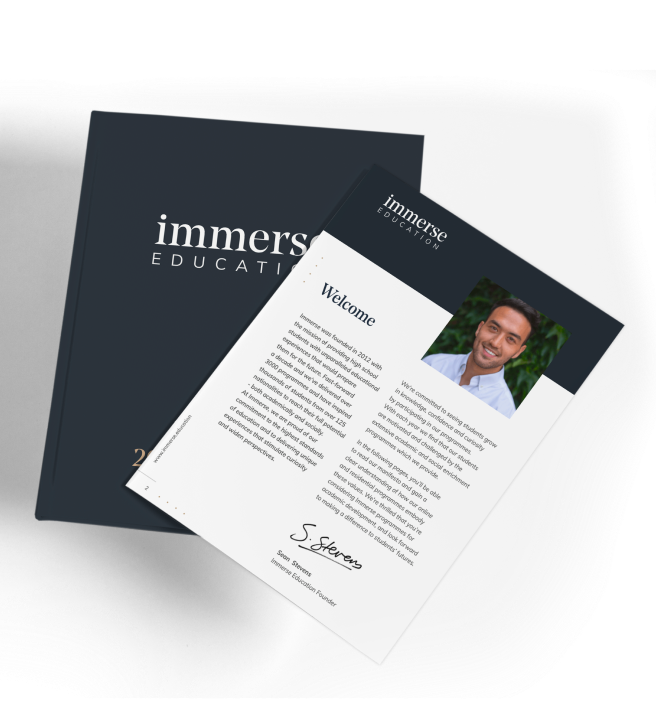
- I'm a Parent
- I'm a Student
- Hidden Name * First Last
- Full Name *
- School SF ID
- Which subjects interest you? (Optional) Architecture Artificial Intelligence Banking and Finance Biology Biotechnology Business Management Chemistry Coding Computer Science Computer Science and Artificial Intelligence Creative Writing Creative Writing and Film Criminology Data Science and Analytics Earth Science Economics Encryption and Cybersecurity Engineering English Literature Entrepreneurship Fashion and Design Female Future Leaders Film Studies Fine Arts Global Society and Sustainability Health and Biotechnology History International Relations Law Marketing and Entertainment Mathematics Medicine Medicine and Health Sciences Nanotechnology Natural Sciences Philosophy Philosophy Politics and Economics Physics Psychology Software Development and AI Software Development and Gaming Veterinary Studies Online Research Programme
- Yes. See Privacy Policy
- First Name *
- Family Name *
- Phone Number
Would you like to receive anything else?
- Prospectuses
- Residential Syllabus Overviews (ages 13-15)
- Residential Syllabus Overviews (ages 15-18)
- Residential Syllabus Overviews (ages 16-18)
- Online Syllabus Overviews (ages 13-18)
- Immerse Education Prospectus 2024
- Career Insights - London Course Guide
- Career Insights New York
- Career Insights San Francisco
- Online Insights Prospectus
- Online Research Programme Prospectus
- Academic Insights - Cambridge & Oxford Prospectus
- Academic Insights Sydney
- Academic Insights Toronto
- Female Future Leaders
- Dates & Fees
- Architecture
- Artificial Intelligence
- Business Management
- Business Management (Sydney)
- Business Management (Career Insights)
- Computer Science
- Creative Writing
- Creative Writing (Sydney)
- Creative Writing & Film (Career Insights)
- Earth Sciences
- Engineering
- Engineering (Career Insights)
- Engineering (Sydney)
- Film Studies
- International Relations
- International Relations (Sydney)
- Medicine (Career Insights)
- Medicine (Sydney)
- Natural Sciences
- Psychology (Sydney)
- Veterinary Studies (Sydney)
- Banking & Finance (New York)
- Business Management (London)
- Data Science & Analytics (San Francisco)
- Creative Writing & Film (London)
- Entrepreneurship (San Francisco)
- Engineering (London)
- Fashion & Design (New York)
- Health Tech & Biotechnology (San Francisco)
- Marketing & Entertainment (New York)
- Medicine (London)
- Law (New York)
- Software Development & AI (San Francisco)
- Architecture & Design (Career Insights)
- Biotechnology
- Business Management (Toronto)
- Computer Science & AI (Toronto)
- Criminology
- Engineering (Toronto)
- English Literature
- Fine Art (Career Insights)
- Game Design (Career Insights)
- Law (Career Insights)
- Mathematics
- Medicine (Toronto)
- Nanotechnology
- Computer Science & AI
- Sustainability
Complete Your Request
- Yes. See Privacy Policy.
Secure priority enrolment for our new summer school location with a small refundable deposit.
" * " indicates required fields
Receive priority enrolment for new summer school locations by registering your interest below.
Our programme consultant will contact you to talk about your options.
Subject is unavailable at location
You have selected a subject that is not available at the location that you have previously chosen.
The location filter has been reset, and you are now able to search for all the courses where we offer the subject.
Last places remaining for July 14th and July 28th courses . Enrol now and join students from 175 countries for the summer of a lifetime
- A Complete Guide to the EPQ | Oxford Royale Summer Schools

The time for you to apply to university is fast approaching, and you may be starting to think about how you’re going to make your university application that little bit more eye-catching. If you have the prospect of a long summer stretching before you and you have no other plans, why not use the summer months to give yourself the best chance of a successful university application? In this article, we introduce you to one way of doing this: the Extended Project Qualification, or EPQ. You may not have heard of it, but we’re going to show you that there are lots of reasons why it’s worth considering.
What is the EPQ?
The Extended Project Qualification, or EPQ, is offered by many schools, and it’s a standalone qualification that’s a bit like a mini-thesis. You’re allowed to choose whatever topic you like – it doesn’t even have to be related to your A-levels – so it’s about as flexible as you can get. It’s unlikely to be included in your university offer, but that doesn’t mean it’s not a respected qualification; it’s certainly no General Studies. Most people start their EPQ over the summer between AS and A2 levels.
What do you have to do to get an EPQ?
You’ll need to register for the EPQ through your school, assuming they offer it. Once you’ve chosen your topic (more on that later), your task is to conduct detailed academic research into that topic. You then have two options: 1. You write a 5,000 word report. 2. You create a ‘production’ or ‘artefact’ and write a 1,000 word report.
Why bother with the EPQ?
So why bother with it, when you already have A-levels to worry about? Well, at a time when it’s increasingly difficult to make your university application stand out, what’s needed is a qualification that highlights the academic skills that admissions tutors are looking for. The EPQ is just such a means of proving that you have talent in the very same areas needed to succeed at university. It’s an academic exercise that has direct relevance to the way in which you’re likely to study once you get to university, as it involves conducting research, just as you would for a university thesis. It’s also a great talking point on your personal statement and in university interviews, demonstrating your enthusiasm for the subject and giving you the chance to show off your knowledge of a particular area of the discipline. As well as the obvious research skills the EPQ helps you develop and demonstrate, it has many additional benefits, as it confers on you a range of other useful skills and demonstrates your suitability for undergraduate study in numerous ways. These advantages include:
- It helps you develop the ability to conduct your own, self-directed programme of study. You’ll be planning your own work, and nobody is going to be there to tell you what to do (though you’ll have a supervisor who’ll be able to give you rough pointers).
- It shows you to be self-motivated, as you’ll need to have the discipline to see your project to fruition – even though it’s the summer and you’ll have plenty of distractions.
- It demonstrates that you have the initiative to pursue your own academic interests. Admissions tutors will love this, because that’s exactly the initiative you’ll need at university.
- It develops your knowledge of your subject beyond the A-level syllabus. This gives you a deeper understanding of the subject and places you at an advantage over those who’ve merely done the A-level.
- It teaches you how to make use of different research materials, not just A-level textbooks. You’ll learn how to use a library for research, and get used to the idea of writing footnotes and bibliographies, which you’ll have to do at university.
What’s more, it doesn’t just help you with applying to university; it’s a satisfying thing to do for your own sake, simply because it allows you to explore a subject you find interesting, in depth. Leaving aside the fact that you’ll come out with an extra qualification, it’s learning for learning’s sake, and you can revel in the fact that you can devote your time to studying something you genuinely find interesting. This will probably make a refreshing change from the classroom, in which there will inevitably be subjects forced upon you that you’d rather not bother with.
What kind of things can I study for my EPQ?
The beauty of the EPQ is that you decide what you study. Of course, in view of the fact that you’re applying to university, it would make sense to select a topic that ties in with the subject you’re planning to study at university (hopefully you’ve decided this by now!). Below you’ll find some guidance on how to choose what to study and whether to choose the longer thesis or the ‘production’ option.
Choosing your topic for a 5,000 word report
When you can choose pretty much any topic you want, it can be difficult to figure out what to do. It makes sense to choose a subject that’s related to what you’re aiming to study at university, as this is an extra way of demonstrating your enthusiasm for the subject, and the fact that you possess the research skills needed to excel in it. It’s also a good way of keeping your mind active and thinking about your future university subject over the summer, ready to write a brilliant personal statement come the start of the new school year. The topic can’t be too broad, or else you don’t stand a chance of doing the topic justice; for example, there would be far too much to cover if you chose the First World War (as a whole) as your topic. A much narrower research focus is needed, to allow you to explore one aspect of a bigger topic in plenty of depth. For example, in the First World War example, you’d stand a better chance with a very specific aspect of the war, such as the Christmas truce, or the Zeppelin attacks on England, or the role of a specific type of aircraft, such as the Sopwith Camel. To give you another example, let’s say you were aiming to study music at university. Trying to address an entire period of classical music, such as the Baroque period, might be a bit of a tall order in a 5,000 word thesis. Even picking the life and works of a famous Baroque composer, such as Bach, might be quite an undertaking. But you could find a lesser-known Baroque composer to research and write about, about whom less is generally known. Or you could research a particular (unusual/antique) instrument and the works written for it during the Baroque period. You could even look into the different kinds of venues used for musical performances during the Baroque period. Ultimately, you’ll need to come up with a specific research question to give direction to your research. For example, taking the Sopwith Camel example above, your question might be “To what extent did the Sopwith Camel shape the outcome of the First World War?” Your question will need to be approved before you can start work.
Choosing your production or artefact
If the thought of writing a 5,000 word report fills you with dread, your alternative is to choose a production or artefact instead. You’ll still need to produce a written report to accompany it, but it’s much shorter, at 1,000 words. What you can do for this is just as flexible as the longer report option. Here are a few examples:
- A musical performance or recording
- A mobile phone app
- A piece of software
- A short film
- A short story
- A model of something
- A piece of art
- An invention
- A charity event
- A fashion show
Ideally, if you’re applying to university, you would choose something that’s in some way related to your future university course. For instance, if you were going to be studying art, then a piece of art would make sense as your chosen EPQ project. A short story would tie in nicely with English Literature, while a musical performance would demonstrate your capabilities in music if that’s what you’re aiming to study at university. Your future career aims may also lead you more towards this option rather than the 5,000 word report, as you can use your project to build up relevant experience for your CV. For example, if you want to go into the fashion industry, then organising a fashion show is an obvious fit. If your ambition is to work for a charity, organising a charity event will be invaluable experience as well as giving you an extra qualification. The benefits of the EPQ, then, go far beyond simply having an extra piece of paper to add to your collection of certificates.
Conducting the research
This may be your first big piece of academic research, so you may be wondering where on earth to start with such an undertaking. You will have a supervisor who’ll be able to teach you the skills you need and point you in the right direction. Some general tips for conducting effective academic research may come in useful. For example, try to make use of as many different resources as you can when you’re conducting your research, including primary and secondary sources, books in the library, the internet, and so on. As you go along, keep a bibliography and record everything you’ve read, including specific page numbers. Be critical of your own methodologies in collecting data, if that’s what you’re doing, and consider the strengths and weaknesses of your methods. These are things you’ll need to get used to thinking about when you go to university, so the EPQ is an excellent warm-up.
How is the EPQ marked?
You’ll need to get a grade between A* and E in order to be awarded the EPQ – anything lower than an E means you don’t get the qualification, so it’s slightly different from A-levels in that respect. Looking at the AQA Specification, there are a number of ‘assessment objectives’ used to decide your final grade, the weighting of which is divided up as follows:
- Manage – 20%. This covers your ability to come up with a project idea and plan how you’re going to achieve it, using “a range of skills, strategies and methods to achieve objectives.”
- Use Resources – 20%. This covers the research phase and how well you’re able to select, organise and deploy relevant information. It also looks at your ability to analyse data, including your ability to see the connections between things you’ve observed, and your appreciation of the “complexities of the topic”.
- Develop and Realise – 40%. This aspect means how well you’re able to carry out your project and see it to fruition, using a range of appropriate skills and technologies.
- Review – 20%. This means how well you evaluate every aspect of your project, such as whether you’ve achieved your objectives, and how well you’ve performed throughout the project. It also reflects your ability to “Select and use a range of communication skills and media to present evidenced project outcomes and conclusions in an appropriate format.”
The mark scheme makes it sound scarier than it is, as mark schemes always do. But if you’re looking for an interesting project to get your teeth into, you can’t do much better than the EPQ thanks to the excellent preparation it gives you for thinking like an undergraduate. It’s a fair bit of work, but the rewards – both in terms of university preparation and personal enjoyment – make it more than worth the effort.

EPQ Guide: Planning
- The Inquiry Process
- Developing a line of inquiry
- Finding and selecting sources
- Working with ideas
- Expressing your ideas

For your EPQ you have the freedom to focus on almost any topic and you will write your own question to answer. You may also produce an artefact (such as a work or art, a performance or presentation, or a product of some kind). You will need to think carefully about setting an achievable goal, with suitable interim deadlines to keep your project on track. Make a clear plan (perhaps using a GANTT chart ) to help you to manage your time.
At this stage you will also want to set up a system for keeping all your EPQ materials organised and encouraging you to reflect on the process throughout (an important part of your assessment) - have a look at the Reflecting tab before you get started for advice on setting up an Inquiry Journal.
| On this page you will find guidance including: And: | As well as resource boxes containing: |
How do I choose a subject?

- Think about your interests outside the classroom then decide whether they might be suitable for academic study.
- Think about your A-level subjects. Which would (and wouldn't) you enjoy exploring in more depth?
- Make a list of the topics (for one or more different subject areas) that you have enjoyed in that subject area and a list of topics you haven’t covered but wish you had. You might want to chat to your teachers or have a look in your textbooks.
- Think about any career aspirations you might have, or any ideas for further study, and they could point you in a direction.
How do I choose a topic?
Go back to your brainstormed list of topics:
- Eliminate any that you don’t really want to write about and focus on the rest.
- Use the ideas on the mind map below to examine these topics and decide which might be worth further exploration. You might choose to make a mind map like this for some of your topics. This particular map was originally produced for the IB Extended Essay but is largely just as relevant for the EPQ.

Before deciding on a topic you should do some preliminary research to see what information is out there. Make a few brief notes as you go.
- General internet browsing: You could begin with some freestyle internet searching on a broad topic that interests you. Search for your topic online, give yourself an hour to follow links and see where they take you – keeping an EE focus, of course!
- Subscription Databases : While you will almost certainly search the databases extensively for your research once you have chosen a topic, you can also browse them to help you to chose one. See the ' Browsing our subscription databases ' box below for advice on the best ones to choose for this. Using the subscription databases to help you to choose a topic also means that you are guaranteed to be able to find high quality information on that topic.
- Talk to your teachers, friends and family
Put your notes away, forget about what you have read for a few days, then see what you remember. This time and distance is important as it is likely that you will remember what is of most interest to you, and so the angle you should develop.
Browsing our subscription databases
You are likely to have used our databases in the past to search for information on specific topics, but many of them are also excellent when browsing for ideas. I have made some suggestions below. You will need to access them from the list on our Subscription Databases page (using the log in information given if you are not on the school network).
As you start to explore your topic, you may find sources that you would like to return to once your ideas have settled down a bit. Keep a record of these in a resource like the Annotated Bibliography (right).

An excellent series of ebooks providing a short, academic introduction to a wide range of topics. Choose to browse by subject or use the excellent search facility if you know which topic you are interested in.

An online encyclopaedia that you can trust and cite! Choose 'Advanced' then 'Explore: Articles' to browse Britannica in a range of different subject areas.

Hodder Review Magazines
Browsing these magazines may be a good way to identify a broad topic of interest. You can either use the search facility or browse different issues of a specific title.

Other, subject-specific resources
- Drama: Drama Online
- Economics: Access Global Newsbank
- English literature: Connell Guides, EBSCO Literary Reference Centre, emagazine and MASSOLIT (a video-based resource)
- Music: , Oxford Music including Naxos Music Library
- Politics: Access Global Newsbank
Is this a good topic to pick for an EPQ?
Questions to ask yourself when choosing a working title and making an action plan:
- Will this topic allow me to investigate and to plan, research, analyse, evaluate and explain, rather than simply describe and narrate?
- Am I going to be able to manage this within the timescale, available resources and word limit (5000 words for a written project alone, 1000 words for a project that includes an artefact)? Is it focussed enough?

- Will I be able to approach this in a balanced and impartial way, or am I already biased by strong opinions and feelings?
- Am I going to be able to understand all the concepts involved at an appropriate level?
AQA Guide to completing the Production Log: Planning

The presentation above contains slides from the AQA presentation Teaching slides: how to complete the production log (available from the AQA EPQ Teaching and Learning Resources website ). These slides are Copyright © 2020 AQA and its licensors. All rights reserved.
A downloadable copy of the Production Log can be found here , on the Home tab of this guide.
Generating ideas

EPQ Application form

Production log

GANTT Chart


Ethical guidelines

- << Previous: The Inquiry Process
- Next: Developing a line of inquiry >>
- Last Updated: Jun 6, 2024 10:05 AM
- URL: https://oakham-rutland.libguides.com/EPQ
Smallbone Library homepage
Search the Library Catalogue
Access our Subscription Databases
Normal term-time Library opening hours: Mon-Fri: 08:30-21:15 Sat: 08:00-16:00 Sun: 14:00-18:00 (Summer Term only)
The Dos and Don’ts of Writing an Academic Essay (EPQ Advice #4)
Thursday 21 march 2019, applicant.

Sponsored articles UCAS Media Service
Degrees focusing on your employability, five reasons to sign up to the ucas newsletter, make the most of your student experience.

Extended Project Qualification: Home
- The Inquiry Process
- Secondary research
- Subject specific resources
- Finding a MOOC
- Taught course 2023-4
- Taught course 2022-3
- Planning your project
- Citing and referencing
- Writing your report
Why choose an EPQ?

At the very least you will learn valuable inquiry skills that will help you at university and beyond.
At best, an EPQ can be a revealing journey of self-discovery that may be the start of a life-long inquiry journey, and the beginning of a deeper relationship with a particular subject or topic.
| On this page you will find guidance including: And: | As well as resource boxes containing: |
What would I need to produce?

- Your completed Production Log
- If your project is solely a research-based written report of any kind (e.g. a science investigation or an essay) it should be approximately 5,000 words long
- You might produce an artefact, such as a piece of art or portfolio, a design product, a website, or a presentation or perfornance. If your product is an artefact, it must be accompanied by a research based written report of a minimum of 1,000 words. For artefacts, you may include photos or other media showing various stages of the production process as well as the final product. You do not need to submit a large artefact as evidence - photographs or other media are fine.
- Your presentation must be delivered live to a non-specialist audience and might use flipcharts or posters, presentation tools such as PowerPoint or Prezi or short video clips. The evidence for your presentation will include a record in your Production Log of questions your supervisor asked and how you responded.
- If your product was itself a presentation then you still need to deliver another presentation about the process of producing it!
Most students produce an EPQ on their own. It is permitted to work in a group (e.g. to produce a group performance) but every student must produce a separate Production Log and research report, and make their individual role in the group clear.
How do I use this guide?

- Once you have explored this Home tab, start by reading through the Inquiry Process tab
- Then use the Planning tab to help you to decide on a subject and topic, and plan your project
- You might then want to start at the end, and visit the Reflecting tab to think about setting up an Inquiry Journal to chart your journey. Reflection is important throughout the inquiry process, not just at the end, and the EPQ process requires you to provide evidence of this reflection at every stage.
- The Developing a line of inquiry tab will help you in the early stages of your investigation, as you are narrowing down your inquiry
- The Finding and selecting sources tab will help you as you gather and work with sources to support your inquiry
- The Working with ideas tab will help you as you make notes from those sources and start to pull all the different ideas you have encountered together into new ideas of your own
- The Expressing your ideas tab will help you as you plan your report and presentation
Who can help me?

- Mrs Toerien, the EPQ Co-ordinator, who is in charge of the EPQ and delivers the taught component of the course
- Your supervisor , who will support you throughout your EPQ, helping you to plan a realistic project and to overcome challenges you meet on the way. Your supervisor will also fill in sections of your Production Log and assess your project.
- The Library staff , who are inquiry experts and can help you to locate and work with the research materials you need
- If your supervisor is not an specialist in your subject, you may also need the support of an Expert Advisor , who may be another member of teaching staff but may equally be someone outside school who has specialist knowledge of your area. Please consult your supervisor and/or Mrs Toerien before making contact with a subject expert from outside school.
AQA Guide to completing the Production Log introduction

AQA copyright notice
The presentation above contains slides from the AQA presentation Teaching slides: how to complete the production log (available from the AQA EPQ Teaching and Learning Resources website ). These slides are Copyright © 2020 AQA and its licensors. All rights reserved.
A downloadable copy of the Production Log can be found here , on the Home tab of this guide.
Librarian and EPQ Co-ordinator

Production log

- Next: The Inquiry Process >>
- Last Updated: Jun 9, 2024 10:42 PM
- URL: https://blanchelande.libguides.com/EPQ
- Plagiarism Checker
- About Premier Essays
- Terms and Conditons
- Write a Review

- Premier Essay
AI Essay Checker: Enhancing Writing Quality and Reducing Stress

Essay Similarity Checker Free for Students
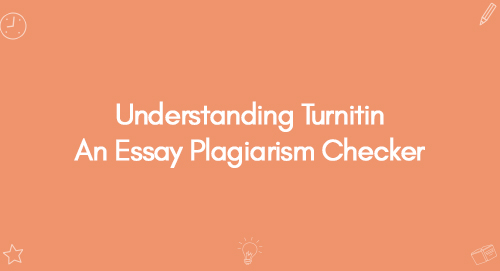
Understanding Turnitin: An Essay Plagiarism Checker
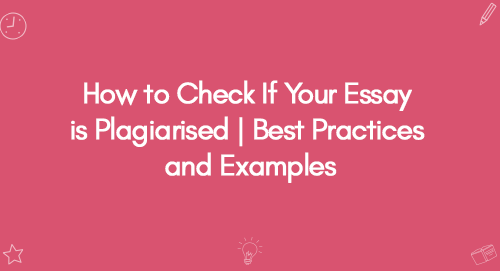
How to Check If Your Essay is Plagiarised | Best Practices and Examples
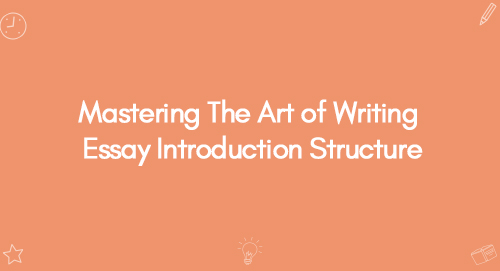
Mastering The Art of Writing Essay Introduction Structure

Essay Planner Template | The Only How-to Guide You Will Ever Need
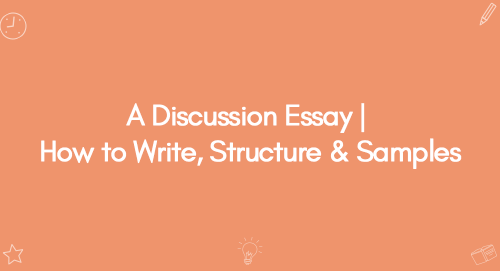
A Discussion Essay | How to Write, Structure & Samples

How to Write a Psychology Essay | Everything You Need to Know

How to Write an Analytical Essay | An Ultimate Guide
How to write epq essay: a step by step guide with examples, get an experienced writer start working, review our examples before placing an order, learn how to draft academic papers.

How to Write a Student Reflective Essay: Structure With Example And Tips

How To Propose Effective Essay Questions? Practical Examples

EPQ essay stands for Extended Project Qualification essay. It is an independent research project undertaken by students, allowing them to explore a topic of their choice in-depth and produce an extended essay enhancing critical thinking and research skills.
As students begin their college assignments, they have to complete an independent research project that is long, intensive, and takes more time to complete.
So by completing EPQ essays, students uncover the ability to develop creative thinking and analytical problem-solving skills that will help them to get into their desired colleges.
Review Our Quality Student Assignment Help Guide
This comprehensive guide aims to provide valuable insights into EPQ essay examples, guiding toward crafting outstanding EPQ essay papers that demonstrate their academic prowess.
Free Premier Essay Writing Topics
Essay Writing is an essential part of academics which presents the ideas, arguments, opinions, or positions of the writer regarding the topic. The writer supports his claims using facts, evidence, or survey studies.
- Clear presentation or understanding of the type of essay
- An appealing introduction with an unambiguous thesis statement
- A well-defined structure of body paragraphs supporting the thesis
A prospective conclusion with an optimistic tone
Pay For Now 9.98$
What is EPQ Essay?
EPQ essays serve as a source of inspiration and guidance for individuals working on their EPQ projects. This write-up showcases the structure, content, and quality of essays that have achieved excellence.
By examining successful EPQ essays, you gain a deeper understanding of effective research methodologies , critical analysis , and compelling presentation techniques.
How to Crafting an Outstanding EPQ Essay?
To create an EPQ essay that stands out, you should consider the following key elements to writing your own EPQ essay:
1. Choosing an Engaging Topic
Select a topic that aligns with your interests, which will keep you motivated throughout the research process . Additionally, ensure that your chosen subject has sufficient academic resources to support your analysis and arguments.
2. Effective Research Methodology
Devise a well-structured research plan encompassing primary and secondary research methods . This will enable you to gather a diverse range of information and perspectives, enhancing the credibility and depth of your essay.
3. Structuring the Essay
Organize your essay into logical sections, including an introduction, methodology, analysis, findings , and conclusion. This coherent structure allows readers to navigate through your work seamlessly, following your arguments and insights effortlessly.
4. Compelling Introduction
Begin your essay with a captivating introduction that clearly states your research question or objective. Engage your readers by providing context, significance, and a glimpse of what they can expect from your essay.
5. Thorough Analysis and Critical Thinking
Demonstrate your analytical skills by critically evaluating your research findings and existing literature. Incorporate different perspectives and theories to enrich your arguments and provide a well-rounded analysis of your topic.
6. Well-Supported Arguments
Back up your claims with credible evidence, such as academic research , case studies , or expert opinions. Ensure that your sources are reliable and properly cited, adhering to academic integrity standards.
7. Coherent Writing Style
Maintain a clear and concise writing style throughout your essay. Use appropriate academic language and terminology to convey your ideas effectively. Avoid excessive jargon and strive for clarity without sacrificing depth.
8. Effective Conclusion
Summarize your key findings and arguments in a concise and impactful conclusion. Emphasize the significance of your research and its potential implications. Leave your readers with a thought-provoking ending that encourages further exploration of the topic.
By incorporating these essential elements, you can create an outstanding EPQ essay that showcases your research skills and academic excellence.

Premier Essays Plagiarism Services
The opinion of a writer based on his knowledge
Writer's stance based on facts Backing claims with statistical data Comparative analysis based on results And many more!

Example EPQ Essay: An Insightful Guide
When it comes to EPQ example essays, one aspect that captures attention is the word count. Many students wonder how to effectively manage an EPQ 5000-word essay example. Fear not, for we have carefully curated a diverse selection of EPQ essay examples to shed light on this matter.
- Abstract: This essay examines the various consequences of climate change on coastal ecosystems, focusing on the ecological disruptions caused by rising sea levels, ocean acidification, and extreme weather events.
- Methodology: The author employs a multidisciplinary approach, combining scientific research, statistical analysis, and case studies to provide a comprehensive evaluation of the subject matter.
- Findings: The essay highlights the vulnerability of coastal ecosystems, emphasizing the urgent need for sustainable practices and environmental conservation measures.
- Conclusion: The author concludes by emphasizing the importance of collective action in mitigating the adverse effects of climate change on coastal ecosystems.
Final Thought
In the pursuit of academic excellence, EPQ essay examples offer a guiding light, enabling individuals to navigate the complexities of research, analysis, and presentation. By harnessing the power of these examples, you can unlock their full potential and produce outstanding work that contributes to the scholarly discourse.
So, let the rich and diverse world of EPQ essay examples inspire and guide you on your academic journey. Harness the power of these examples to unlock your own academic excellence and make a meaningful impact in your chosen field of study.
Related Topics
Generic nouns
Specific nouns
Group nouns
Individual pronouns
- Mass and discrete nouns
Examples
other .
Mass and discrete nouns
Get an Immediate Response
Discuss your requirments with our writers
WhatsApp Us Email Us Chat with Us
Related posts
Leave a reply cancel reply.
Your email address will not be published. Required fields are marked *
Save my name, email, and website in this browser for the next time I comment.
- How It Works
- Prices & Discounts
How to Write an A+ Extended Project Qualification Essay
Table of contents
As you start your college assignments, you will come across an independent research project that is lengthy, intensive, and takes around 120 hours to complete the assignment entirely – this is the Extended Project Qualification Essay (EPQ).
An EPQ assignment helps in developing and broadening creative thinking and analytical problem-solving skills, as well as being beneficial for getting students into their desired colleges for other further education.
Well, everything has its first time, and if you’re wondering how to approach the EPQ essay, this article will help you get started.
9-Step Guide to Write a Perfect EPQ Essay
The EPQ essay plays a significant role in building academic confidence, enhancing creative writing skills , and demonstrating your passion for a particular subject or topic.
<<Check EPQ Sample>>
While working on this EPQ essay, students learn how to manage their time, meet deadlines, work on constructive feedback, learn independently, and conduct thorough research.
Here’s how you can write an A+ extended project qualification essay in 9 steps.
1. Brainstorm topic ideas
The first thing to do before you start writing your EPQ essay is to find an engaging topic that interests you. Look for ideas and brainstorm subject matter essay topics that are significant to you and intrigue your mind.
Many students make the mistake of choosing boring topics they are not interested in. This eventually leads them to draft up an average, low-quality assignment.
Choosing an appropriate topic that genuinely interests you will help you stay focused and motivate you to work hard and efficiently on your EPQ assignment.
You would also understand your subject matter better and learn more – which would result in making this assignment a high-scoring, fun, and engaging experience.
2. Jot down your ideas
Before you start researching your topic and learning brand new information, use your prior knowledge and write down everything – thoughts, ideas, facts, statistics – you know about your topic and subject matter.
This will help you understand the pieces of information you already have and can thus assist in organizing them for easier understanding and reference. You will also be able to identify if there are any fixable gaps in your knowledge, as this will be held as the foundation of how you will proceed to the next steps for researching your topic.
If you find that you aren’t inspired, you do not have a lot of information on your topic or there are massive gaps in your knowledge, it is better to eradicate the entire idea and start afresh than to submit a half-measured, uninteresting essay.
3. Create mind maps to define the subject matter
Whether your EPQ question is from a Maths, Physics, Biology, Psychology, etc. background, you are required to create a question or a prompt through which you can write your essay.
An Extended Project Qualification essay is mostly a 5000-word essay – and drafting an interesting, engaging, and inspiring essay without a question or a prompt is almost impossible.
Many students fail to do well and get a good grade on this particular essay assignment because they give the topic and content of the essay more important than the essay prompt .
Create a mind map and fill in any idea or thought that comes to you related to your topic. Through this mind map, you can remove ideas that don't pertain to the subject and segregate interesting points to craft your essay question that genuinely piques your interest.
However, it is also a best practice to choose a prompt that has a variety of information, references, statistics, and arguments to it.
This will make it easier to do your research on this topic. Make sure to choose a question that doesn't have a conclusive answer so that you can do extra added research on it and learn more about this subject.
Here’s a video by Justin Sung on using mind maps correctly.
4. Research the topic
Now is the time to focus on the body of the EPQ essay. Try to flesh out all the information you can find about your topic, thus filling the gaps you found in your prior knowledge.
At this time, make it a point to adhere to your chosen title for the essay, the essay question, and the structure you’ve used to lay down your arguments. Check for reliable sources of information such as books, articles, online journals, and more through the internet.
Keep a note of all the references and sources you’ve used to scourge up quality information for your essay assignment. Eventually, this list of sources would be a good way to organize your reference page or bibliography.
5. Structure and organize your essay
As you’ve gathered all the relevant information about your EPQ essay topic, it is time to organize your essay to have better readability, flow, and transitions through different arguments and paragraphs.
The structure needs to provide a robust framework for your essay content and exactly express what and how you want your essay to be delivered. It also helps you stay focused on the essay prompt and the kind of research you need to do to answer it.
Keep in mind to include some essential portions in your essay structure, such as the chronological list of subtitles for subsections and a placeholder to add in the introduction and conclusion paragraphs.
6. Create subtitles for your subsections
Split your essay body into subsections to make it easier to follow a structure and keep space for adding in any new related information. Creating subsections will also help you identify any missing facts and if you’ve explored the topic in detail.
Divide the 5000-word essay into equal and manageable portions with subtitles, and make sure to keep each subsection 100% related to your essay question. These subtitles are mini-topics that will help you get a better idea of what you want to say in your essay.
To create these subsections, you could choose to divide them chronologically or even in a most-important-subsection to least-important-subsection format.
7. Allocate a word count for each subsection
It's not an easy feat to write a 5000-word essay, which is why allocating a specific word count limit to each subsection would help complete the entire essay in a much smoother way.
You must divide your subsections into 16 subtitles, with about 300 words for each subtitle. This will help you reach 4800 words, leaving 200 words for any added paragraphs, points, or arguments. You can choose to keep the number of subtitles between 14 to 18 and allocate the word count to each of them accordingly.
Writing short, manageable portions for your EPQ essay makes the experience more productive, focused, effective, and less monotonous.
8. Write the introduction and conclusion paragraphs
Once you’ve completed writing down the answers to your subtitles, the next step is to write your introduction and conclusion paragraphs.
Your introduction paragraph needs to be shorter than your subtitled subsection. It should encapsulate what your readers should expect out of your essay and a summary of what you want to express, including your main thesis statement.
Whereas your conclusion paragraph should be longer than the subtitled subsections as well as the introduction paragraph. The conclusion should essentially be able to answer the essay prompt which was asked at the beginning of the essay, and aim to include essential points from each subtitled subsection for clarity of understanding.
As a best practice, it is recommended to build your introduction and conclusion paragraphs once you’ve completed writing your main body, as you will have all your arguments and points in place and have a better grasp of how you answered your EPQ essay question.
9. Review and ask for feedback
Lastly, whether it's a friend, parent, or peer, you should get your EPQ essay reviewed and proofread by someone else to receive a fresh perspective and a different opinion on your content and framework before submitting your final draft.
Neglecting to proofread your work would invite unnecessary errors, grammatical issues, and spelling mistakes. Reviewing and proofreading your essay could help identify and fix wrong academic vocabulary , vague arguments, incomplete sentence structures, accuracy, contradictions, incorrect facts, and more.
For students aiming at standout grades, an A+ Extended Project Qualification Essay can be the game-changer. While it requires a high degree of knowledge-sourcing, meticulous application, and strong conviction to write an impressive piece, the above suggestions will go a long way in easing the path.
From the time you zero down on a riveting topic to the final moment you press the submit button, this should be your handy to-do reckoner for surefire success.
We at Writers Per Hour can help you write a stellar EPQ essay. Our professional essay writers are subject matter experts in their respective fields and hail from leading universities across the US, UK, and Australia.
All you have to do is fill out the order form, give us your requirements, and we’ll assign the best writer for the task. With our safe payment methods and transparent policies, we’re an essay writing service you can truly trust.
Share this article
Achieve Academic Success with Expert Assistance!
Crafted from Scratch for You.
Ensuring Your Work’s Originality.
Transform Your Draft into Excellence.
Perfecting Your Paper’s Grammar, Style, and Format (APA, MLA, etc.).
Calculate the cost of your paper
Get ideas for your essay
- About Chris Rand
How to get a 100%, A* EPQ mark – some tips
- 20 August 2019 27 June 2024
My son did his Extended Project Qualification (EPQ) in 2018, at Hills Road Sixth Form College, Cambridge, and it was really interesting to watch. For something worth just half an A-level (and in reality when it comes to university applications, worth nothing), it required an astonishing amount of work. For busy sixth-formers to find the time or the motivation requires some dedication. That said, the EPQ is a good introduction to doing a properly planned and structured research project, so I encouraged my son to take the trouble. He did so, and his project was eventually marked 100% (A*) in 2019.
My best advice is to reverse-engineer the whole exercise. Remember, the EPQ is not about your project itself, but about the process of planning and executing it. So get the detailed marking scheme from the exam board’s website, and painstakingly go through every single item, noting what needs to be done to get full marks. Keep this in mind throughout the project.
Show how you’ve developed a range of skills by creating as much supporting material around the project as you can. For example, the core product from my son’s project was always going to be a dissertation. But along the way he also created a blog (to use as the project diary), a video and a podcast. He interviewed real people for comments, created an illustration in Adobe Illustrator and found out how to use Microsoft Excel for a Gantt Chart. All of these gave him new things to learn, and more importantly to write about.
There’s no way around it: if you want to get a really top mark in your EPQ, you’re going to have to devote all the time they suggest, and possibly more. But it can be an interesting experience.
My son’s project was eventually picked up by a campaigning group which I belong to, and published on their website . However, the best place to see the project in full is at the website he created to showcase the work here .

3 thoughts on “How to get a 100%, A* EPQ mark – some tips”
Hi, great tips. I will definitely use these.
I don’t know how I got here, but this was a really interesting read with good insight and advice. Congratulations to your son. My daughter did an EPQ in engineering materials and biomimicry and was very proud of it. Unlike you, I didn’t get to see it! She was a shy worker. So much work and dedication can go into such a project (including travel to attend a conferences, writing to researchers, waiting for replies, etc). She messed up a bit in her A level results, but her EPQ helped get accepted on her course. So in her case it did count. She ended up being a top mark student in her university course.
Really interesting that the EPQ counted for something, Mari. And so pleased your daughter’s hard work paid off!
Leave a Reply Cancel reply
Your email address will not be published. Required fields are marked *
Save my name, email, and website in this browser for the next time I comment.
Full-Length Paper Practice Tests
Download an official full-length practice test for free to help you prepare.
While anyone is welcome to use our downloadable paper practice tests, using these practice materials does not mean you have been approved to test with a particular accommodation. The PDF versions of our practice tests are nonadaptive and are recommended only for students who will test with paper-based accommodations on test day.
When you're ready to score your test, download the scoring guide and answer explanations for your practice test and check your answers.
NOTE: The practice test materials for PSAT/NMSQT and PSAT 10 can be used interchangeably.
Full-Length SAT Paper Practice Tests
You can find everything you need to take and score your official full-length SAT practice tests on paper below.
Full-Length SAT Paper Practice Test 1
This full-length, linear (nonadaptive) official SAT practice test was written by the same people who wrote the SAT. Download it to get started.
SAT Practice Test 1–Digital
This full-length, official SAT practice test was written by the same people who wrote the SAT. Download it to get started.
SAT Practice Test 1 Answer Explanations–Digital
Download the answers — and the explanations that show why they are right — for SAT Practice Test 1.
Scoring Your SAT Practice Test 1—Digital
Download this guide to calculate your section and total scores for SAT Practice Test 1.
Full-Length SAT Paper Practice Test 2
Sat practice test 2–digital, sat practice test 2 answer explanations–digital.
Download the answers — and the explanations that show why they are right — for SAT Practice Test 2.
Scoring Your SAT Practice Test 2—Digital
Download this guide to calculate your section and total scores for SAT Practice Test 2.
Full-Length SAT Paper Practice Test 3
Sat practice test 3–digital, sat practice test 3 answer explanations–digital.
Download the answers — and the explanations that show why they are right — for SAT Practice Test 3.
Scoring Your SAT Practice Test 3—Digital
Download this guide to calculate your section and total scores for SAT Practice Test 3.
Full-Length SAT Paper Practice Test 4
Sat practice test 4–digital, sat practice test 4 answer explanations–digital, scoring your sat practice test 4—digital.
Download this guide to calculate your section and total scores for SAT Practice Test 4.
Full-Length SAT Paper Practice Test 5
Sat practice test 5–digital, sat practice test 5 answer explanations–digital.
Download the answers — and the explanations that show why they are right — for SAT Practice Test 5.
Scoring Your SAT Practice Test 5—Digital
Download this guide to calculate your section and total scores for SAT Practice Test 5.
Full-Length SAT Paper Practice Test 6
Sat practice test 6–digital, sat practice test 6 answer explanations–digital.
Download the answers — and the explanations that show why they are right — for SAT Practice Test 6.
Scoring Your SAT Practice Test 6—Digital
Download this guide to calculate your section and total scores for SAT Practice Test 6.
Full-Length Paper Practice Tests for PSAT-Related Assessments
When you want to practice for the PSAT/NMSQT, PSAT 10, or PSAT 8/9, our full-length practice tests can help you prepare.
Full-Length PSAT/NMSQT Paper Practice Test
Psat/nmsqt practice test 1, scoring your psat/nmsqt practice test 1.
Use this guide to score your test.
PSAT/NMSQT Practice Test 1 Answer Explanations
Full-length psat 10 paper practice test, psat 10 practice test 1, scoring your psat 10 practice test 1, psat 10 practice test 1 answer explanations, psat 8/9 practice test 1.
Take an official PSAT 8/9 practice test and score your results.
PSAT 8/9: Practice Test 1
Psat 8/9 practice test 1 answer explanations, scoring your psat 8/9 practice test 1, sat practice essays.
If your state offers SAT Essay as part of its in-school testing, you can find practice essay prompts and scoring explanations below.
SAT Practice Essays and Score Explanations—Digital
NOTE: The Essay is only available in certain states where it's required as part of SAT School Day administrations. If you're going to be taking the SAT on a school day, ask your counselor if it will include the Essay section.
SAT Practice Essay 1—Digital
This full-length, official SAT practice essay was written by the same people who wrote the SAT. Download it to get started.
SAT Practice Essay 1 Score Explanations—Digital
Download student sample essays—and the explanations that show why they received the score they did—for SAT Practice Essay 1.
SAT Practice Essay 2—Digital
Sat practice essay 2 score explanations—digital.
Download student sample essays—and the explanations that show why they received the score they did—for SAT Practice Essay 2.
SAT Practice Essay 3—Digital
Sat practice essay 3 score explanations—digital.
Download student sample essays—and the explanations that show why they received the score they did—for SAT Practice Essay 3.
Your Full Guide to the EPQ
1.1 Choosing the Topic
1.2 Choosing a Title
2.1 Planning
2.2 Artefact or Research Paper?
2.3 Deadlines
3.1 Picking Sources
3.2 Referencing
4.1 Structuring the Report
4.2 Presenting Your Data
5.1 A Summary
Scroll to see replies
Quick Reply
Related discussions.
- Epq supervisor
- Should I continue doing my EPQ? (EMERGENCY, PLEASE HELP)
- Is it too late to apply for medicine?
- Should I drop epq?
- School forces EPQ? Worth it for Maths?
- EPQ at home
- Can I do an EPQ privately?
- Is doing an EPQ worth it?
- HTML Website EPQ
- Should I take an EPQ? Your Questions Answered
- Computer science admission into Stanford as UK student
- Medicine-based EPQ
- Imperial College Materials Science and engineering interview
- Should I take BAC/EPQ along with my four A Levels?
- Firm and Conditional offers
- Physics with ABB
- Transferring to 2nd year biomedical science
- Fashion uni with 2 A levels?
- Oxford University EPQ
- How many footnotes is too much in an EPQ
Last reply 4 days ago
Last reply 1 week ago
Last reply 2 weeks ago
Last reply 3 weeks ago
Last reply 4 weeks ago
Last reply 1 month ago
Last reply 2 months ago
Last reply 4 months ago
Articles for you

What A-levels do you need to become a doctor?

What A-levels do you need to study economics?

Will artificial intelligence put legal graduates out of work?

Why industry placements are so important for business students

COMMENTS
That is why I have written this (hopefully) detailed guide on how to write an EPQ. 1. Think Of An EPQ Topic That Genuinely Interests You. The most important thing to do before you even start your EPQ is to find a topic that actually interests you. Think about what you like, and focus your EPQ essay on that.
Writing an EPQ essay can seem like a daunting task, which is why we've written this nine-step guide to help make the whole process easier. In addition to the A-Levels you're already doing, you can choose to take an EPQ (Extended Project Qualification). An EPQ is an independent research project, and it's extremely beneficial as it counts ...
Here is a 9-step guide to help you write an effective EPQ essay: Brainstorm EPQ topic ideas: Choose an engaging topic that interests you and is relevant to your academic or career goals. Conduct research: Gather information from various sources to support your arguments and provide evidence. Create a structure: Organise your essay with a clear ...
Read our guide: What is an EPQ. This article will give you 600 EPQ topic ideas on a range of subjects to help you choose a good question and, more importantly, get an A*. How to Choose a Good EPQ Idea. Getting a good grade in the EPQ relies on several factors, including meticulous planning, solid time management, and strong essay writing skills.
591727354349HELLO!Doing an EPQ is your chance to demonstrate your skills as an independe. t thinker and researcher. It is also your chance to really explore a topic you have a genuine interest in, something you're enthusia. tic and passionate about. You will develop key skills, such as managing your time, presentation skills and report ...
Flair, originality and accurate use of language are all helpful when writing an academic essay but this booklet provides useful guidance on the technique of academic writing. It's a style you can learn if you follow this guidance. In bringing this guide together, we have sourced the very best advice from top universities, from exam boards and ...
Your EPQ will be assessed on: Your completed Production Log; A written report (sometimes referred to in this guide as an essay) if your project is a research based written report of any kind (e.g. a science investigation or an essay) it should be approximately 5,000 words long
How to write an EPQ essay - 9 Steps. 1. Your idea. The first place to start is with an idea. My advice here to is study something that you are genuinely interested in and also really want to learn more about. It's also helpful to study something that furthers your larger aims. So, if you know you're particularly interested in a certain area ...
Who supervises my EPQ? • Mrs Beattie or Mr Cox. When should I start working on it? • it is recommended that you spend up to 120 guided learning hours on your project. This includes meetings with your supervisor, planning, researching, organising, writing and drafting. What should the written report contain?
In short, the EPQ is a standalone qualification similar to an A-Level. Most often, it takes the form of an extended essay, like a mini-dissertation. However, there are four ways to complete the project: Dissertation: A 5000-6000-word piece of independent, research-informed writing.
A project which consists solely of written work should be approximately 5000 words; for. of a hy. othesis or extended essay or academicreport. Projects where the majority of th. evidence is provided in other formats shouldinclude a report or record of. least 1000 words.FREQUENTLY ASK.
The Extended Project Qualification, or EPQ, is offered by many schools, and it's a standalone qualification that's a bit like a mini-thesis. You're allowed to choose whatever topic you like - it doesn't even have to be related to your A-levels - so it's about as flexible as you can get. It's unlikely to be included in your ...
Your EPQ will be assessed on three areas: Your completed Production Log. A written report (sometimes referred to in this guide as an essay) If your project is solely a research-based written report of any kind (e.g. a science investigation or an essay) it should be approximately 5,000 words long. You might produce an artefact, such as a piece ...
Planning. For your EPQ you have the freedom to focus on almost any topic and you will write your own question to answer. You may also produce an artefact (such as a work or art, a performance or presentation, or a product of some kind). You will need to think carefully about setting an achievable goal, with suitable interim deadlines to keep ...
DON'T over-complicate - 'academic essay' makes it sound like a big deal, but in terms of language and structure, it's very similar to regular essays written throughout school. Keep it simple. The most important thing is making sure your essay is clear, easy to understand and linked to research. So don't stress out trying to include ...
Your EPQ will be assessed on three areas: Your completed Production Log; A written report (sometimes referred to in this guide as an essay) If your project is solely a research-based written report of any kind (e.g. a science investigation or an essay) it should be approximately 5,000 words long
Example EPQ Essay: An Insightful Guide. When it comes to EPQ example essays, one aspect that captures attention is the word count. Many students wonder how to effectively manage an EPQ 5000-word essay example. Fear not, for we have carefully curated a diverse selection of EPQ essay examples to shed light on this matter.
Here's how you can write an A+ extended project qualification essay in 9 steps. 1. Brainstorm topic ideas. The first thing to do before you start writing your EPQ essay is to find an engaging topic that interests you. Look for ideas and brainstorm subject matter essay topics that are significant to you and intrigue your mind.
He did so, and his project was eventually marked 100% (A*) in 2019. My best advice is to reverse-engineer the whole exercise. Remember, the EPQ is not about your project itself, but about the process of planning and executing it. So get the detailed marking scheme from the exam board's website, and painstakingly go through every single item ...
A. tlmurphy. Original post by Jas2007. With this EPQ thing do you have to create your own question to write an essay on. You do have to choose your own subject/question but it doesn't have to be a 5,000-word essay. You can do different things depending on what subject you choose.
Download this guide to calculate your section and total scores for SAT Practice Test 1. PDF; 955.99 KB; Close Download All Downloads. Full-Length SAT Paper Practice Test 2 ... If your state offers SAT Essay as part of its in-school testing, you can find practice essay prompts and scoring explanations below.
There are an overwhelming amount of questions on the EPQ in the Study Help section so I'm here to shed some light on some of these FAQ and give you all a full, comprehensive guide to the qualification, including what you can do right now to get started! 1. Picking the Perfect Title. 1.1 Choosing the Topic.